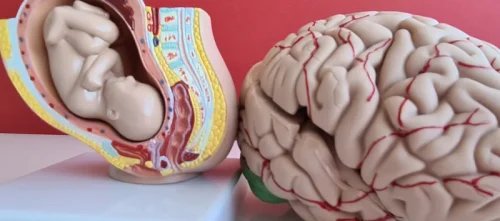
Clinicians strictly monitor patients for physiological symptoms outside of the norm, or symptoms of overdose. Because of psychedelic medicine’s strict standards, toxicity and overdose have not occurred within the clinical setting. Of course, there’s several outside factors that could promote habit-formation surrounding psychedelics. If you’re someone who’s had a history of substance use disorder, it’s highly recommended that you embark on this journey with a knowledgeable psychedelic guide. Predispositions to any habit-related issue could encourage misuse of psychedelic medicines, which could counter the positive benefits of these practices. Research on the possible medical uses of psychedelics is still at a preliminary stage, but early studies suggest that psychedelics may decrease depression and anxiety.

What Are Psychedelic Drugs?
In any case, tapering off of these medications should resolve and prevent any negative drug interactions. We’ve actually written an entire guide on how antidepressants should be handled when you’re thinking of embarking on a psychedelic experience, so definitely check that out if you’re interested in learning more about pharmaceutical interactions with psychedelic medicines. Though our research on psychedelics in conjunction with bipolar disorder are limited, it’s suggested that you speak to your psychiatrist before making a decision. There’s a chance that exposure to a psychedelic experience could trigger an unwarranted manic episode or cause a worsening of symptoms, but in some cases, this could be potentially avoided by an adjustment of dosing size. In addition to producing visual hallucinations, euphoria, and mystical experiences, psychedelics have other effects that underlie their recreational use. According to one clinical trial, these include derealization, which is when a person feels detached from their surroundings, and depersonalization, which is when they feel detached from their body or mind.

How it’s done
Question 4 says psychedelics would be administered under the supervision and guidance of a trained, licensed professional at regulated therapy centers. One of his patients was in a coma for two months after taking the psychedelic Ayahuasca, which was administered by a shaman. The patient’s mother, who wished to remain anonymous, said her child is still recovering.
Take Our Substance Abuse Self-Assessment

Another long-term effect is a phenomenon called hallucinogen persisting perception disorder (HPPD). This involves flashbacks of a prior drug experience that can happen without warning and cause significant distress or impairment. The flashbacks may occur within a few days or more than 1 year after drug use. HPPD can cause alarm, as a person may mistake the symptoms for a brain tumor or stroke.

- The drug processed from peyote is mescaline, a well-known hallucinogenic drug.
- Anyone considering the use of psychedelics—whether recreationally or therapeutically—should do thorough research, and be aware of the legal implications.
- They provide a reassuring presence even before the drug is administered, during the time it is active, and after the effects have worn off.
- This is over 700 times the high dose of 25 mg used in clinical studies, for an average body weight of 70 kg.
- Some experts have expressed concerns at the rise of self-medicating, particularly after the 2020 Global Drug Survey showed an increase in the number of people who say they are self-treating various mental health concerns with psychedelics.
„Through this research, VA intends to gather rigorous scientific evidence on the potential efficacy and safety of psychedelic compounds when used in conjunction with psychotherapy,“ said Terrence Hayes, VA press secretary, in a prepared statement. „These studies will be conducted under stringent safety protocols and will mark the first time since the 1960s that VA is funding research on such compounds.“ A classic psychedelic, similar to LSD, psilocybin and mescalin, was found to activate a cell type in the brain that silences other neighboring neurons, a result that provides insight into how such drugs reduce anxiety, according to a new study in mice and rats. Those struggling with substance use may want to take extra care when considering psychedelics. Some psychedelics are being studied for their use for certain substance use disorders, but that requires strict protocol under professional supervision.
PAP drug development currently involves plant medicines that have been used safely by indigenous populations for thousands of years, by western populations over successive generations and currently in clinical trials for many psychiatric disorders in controlled situations. Such molecules do not require the same development steps as NCEs, as considerable information regarding their safety and efficacy already exists. With adequate inclusion and exclusion criteria and clinical supervision, adverse physiological reactions are minimal (Malleson, 1971; Muttoni et al., 2019). In rats, psilocybin has been reported to have an LD50 of 280 mg/kg (Cerletti, 1958, as cited in Passie et al., 2002).
Adverse effects of psychedelics: From anecdotes and misinformation to systematic science
While many have heard of psychedelics being used solely for recreational purposes, they are now being explored for their mental health benefits. In general, the main findings were that people tended to become less critical and quarrelsome and less anxious and easily upset four weeks following their experiences. We’re looking forward to learning more about how psychedelic experiences may be helpful for things like aggression, disagreeableness, and conflict-proneness — tendencies for which there are are psychedelics addictive not very widely used or effective therapies/programs. Third, there was some evidence that people who came into the experience with a lower ability to occupy the mental perspectives of others increased in this ability following their experience. Fourth, we found a small increase in perceived belonging to the community and society. And finally, because our sample is fairly large and if anything there is a bias in our sample toward positive changes, it is notable where we did not find changes.
Hallucinations are sensory experiences that cause a person to see, hear, smell, taste, or feel things that are not really there. Someone who takes psychedelics may experience changes in their awareness of their thoughts and surroundings. King’s opinion is there is ample research that shows psychedelics are safe, that the substances listed with Question 4 are not addictive and they’re safer than other schedule 1 drugs including cannabis.
Emerging evidence suggests that certain psychedelics may have medicinal benefits for a range of health conditions, particularly common mental health conditions such as anxiety and depression. Due to decades of anti-drug propaganda and harsh government-imposed limits on research, one of the most challenging risks regarding psychedelic medicine is misinformation. New studies and laws based on science can provide accurate information to people who are curious about psychedelic therapy. For this to happen, LSD, MDMA, psilocybin and other substances need to be taken out of the Schedule I classification. Prohibition from this type of scheduling leads to the use of adultered or fake substances, which tend to be much more dangerous than the psychedelic itself. New research, published in the journal ACS Chemical Neuroscience, finds both potential benefits and risks of using psychedelic microdosing to treat mental health problems.
